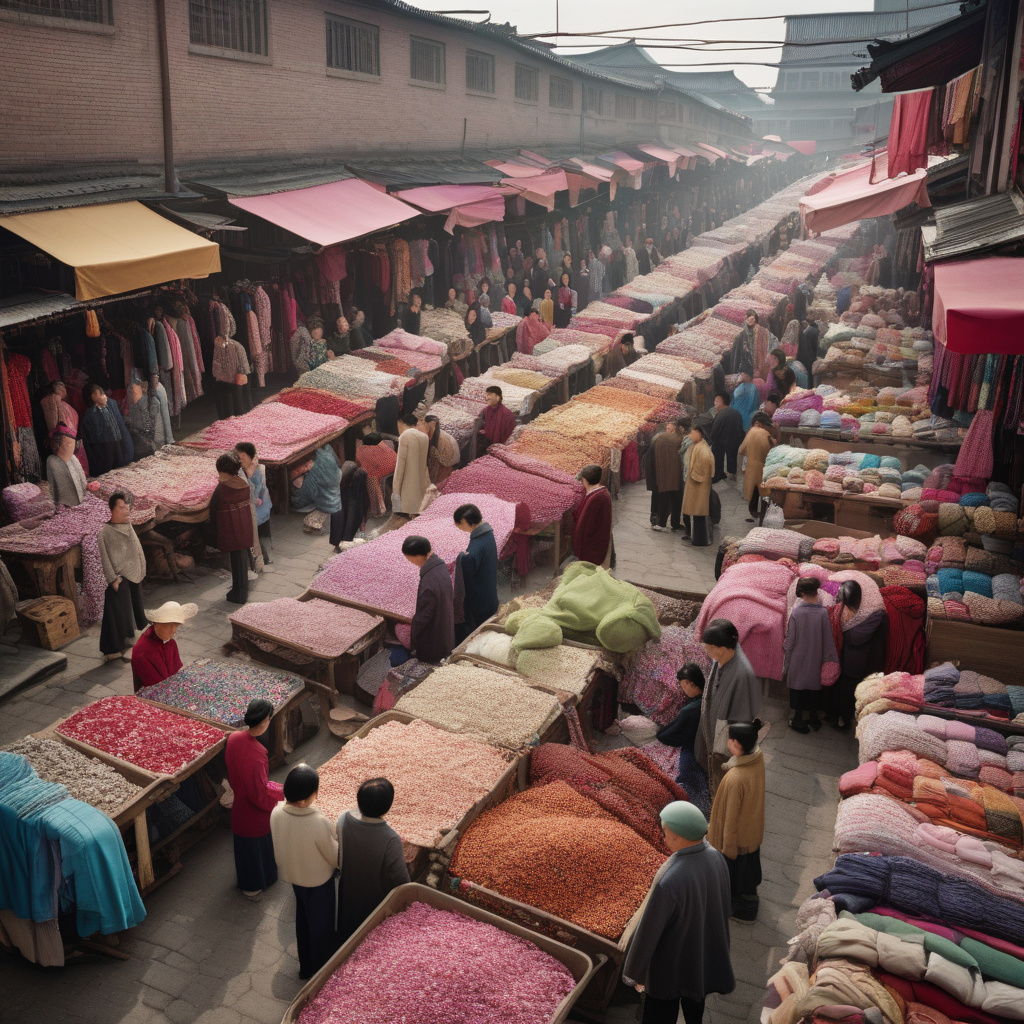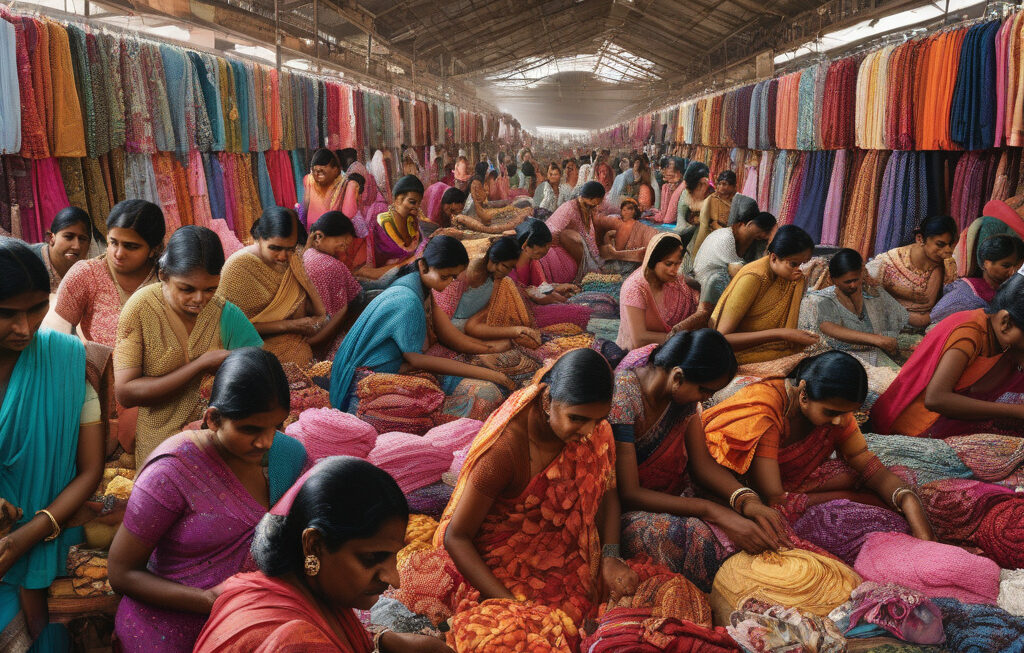China’s Fast-Fashion Capital Slows Down Under Trump’s Trade War
Garment factories in Guangzhou, often hailed as China’s fast-fashion capital, are currently facing turbulent times as they navigate through a storm of geopolitical and economic challenges, primarily catalyzed by the ongoing trade tensions between the United States and China. The reverberations of this conflict have significantly impacted the garment industry in Guangzhou, a city known for its bustling manufacturing sector and as a key player in the global supply chain for fast fashion.
The trade war initiated by the Trump administration has led to a series of tariffs on Chinese goods, including textiles and apparel, creating a ripple effect that has penetrated deep into the roots of Guangzhou’s garment sector. As a result, many factories in the region are feeling the strain of decreased demand, rising production costs, and uncertainty about the future of their exports to the United States, one of their primary markets.
One of the key challenges faced by garment factories in Guangzhou is the increase in production costs due to the tariffs imposed on Chinese goods. With higher tariffs making exports more expensive, manufacturers are forced to either absorb the additional costs or pass them on to consumers, risking a potential decline in demand. This conundrum has left many factory owners in a precarious position, trying to strike a delicate balance between maintaining profitability and staying competitive in the global market.
Furthermore, the unpredictability of the trade war and the ever-looming threat of further escalations have created a sense of instability within the industry. Manufacturers in Guangzhou are finding it increasingly challenging to make long-term business plans and investments, unsure of how the trade dynamics between the two economic powerhouses will unfold. This uncertainty has dampened the once-vibrant spirit of innovation and growth that characterized the fast-fashion scene in Guangzhou, pushing many businesses into survival mode.
In addition to the economic challenges posed by the trade war, garment factories in Guangzhou are also contending with geopolitical headwinds that are reshaping the global trade landscape. The shifting dynamics of international relations have forced manufacturers to reconsider their sourcing and production strategies, with some exploring alternative markets outside of China to mitigate risks associated with overreliance on a single market.
Despite the daunting challenges that lie ahead, there is a glimmer of hope on the horizon for garment factories in Guangzhou. The adversity brought on by the trade war has sparked a wave of resilience and adaptability within the industry, prompting manufacturers to explore new technologies, sustainable practices, and diversified business models to weather the storm. By embracing innovation and agility, some companies have managed to carve out a niche for themselves in the ever-evolving global fashion landscape, demonstrating that adversity can breed innovation.
In conclusion, the garment factories in Guangzhou are indeed facing a slowdown amidst the tumultuous trade war unleashed by the Trump administration. However, in the face of adversity, there is an opportunity for reinvention and growth. By embracing change, fostering innovation, and adapting to the new normal of the global trade landscape, the fast-fashion capital of China can navigate through these challenging times and emerge stronger on the other side.
Guangzhou, fast fashion, trade war, garment industry, innovation












